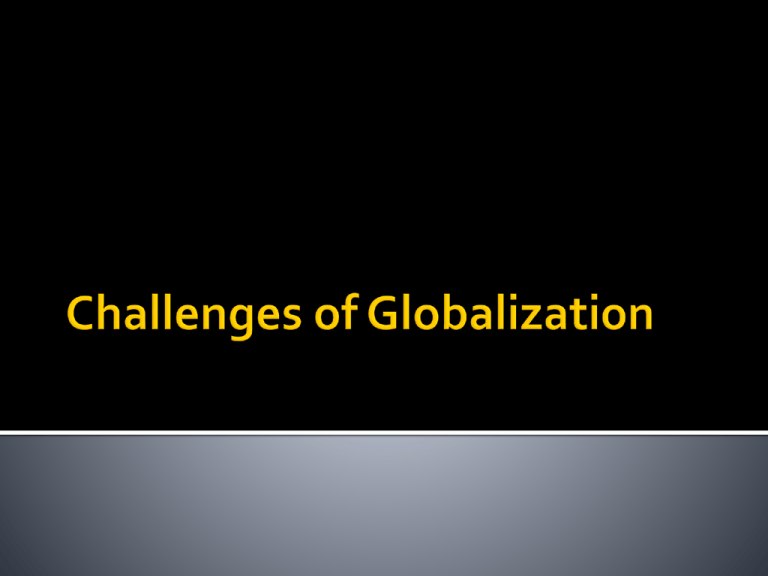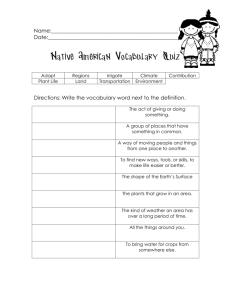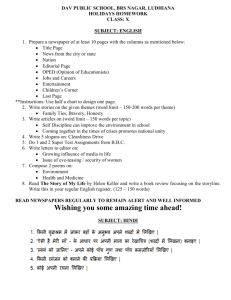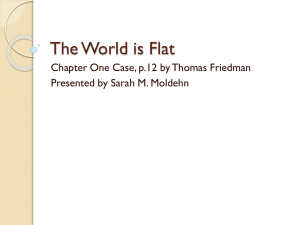TRADE
advertisement

We will be watching the video about the population of the world again. I want you to pay attention to the little white dots. There are time periods when those dots will disappear. Keep in mind each white dot represents 1 million people. Do not look away from the video…you might miss something important. http://www.youtube.com/watch?v=9_9SutNmfFk&feature=related In your notes in the space below write down some challenges you think the world will face due to population growth. Write down some things that population growth helps. http://www.youtube.com/watch?v=VeWayR m0cmU&feature=related We have already learned that globalization is the creation of a single global economy and community. We will now look at the challenges of globalization. Offshoring – Many companies are moving their production facilities to countries where the costs of labor and other productive factors are lower. Outsourcing – companies hiring other companies, usually over seas, to produce parts or to provide other services. Benefits – People enjoy goods and services from around the world. Enjoy the benefits of connectivity. Sped up the pace of economic development Increased the standard of living Costs – Manufacturing has shifted away from countries where labor costs are higher. Workers have lost jobs in more developed countries. Workers in newly developed countries are forced to work long hours under harsh conditions. Increased pollution. Global climate change Spread of diseases Definition – the exchange of goods and services Trade occurs because different areas tend to specialize in specific economic activities. Natural Resources – come from nature. Examples: Oil and Coal Climate – factor affecting the location of economic activities. For example, crops can only be grown in certain locations. Human Resources – workers Infrastructure – type of capital resources. Investment society makes by building roads, laying railroad tracks, constructing power plants, and setting up phone and Internet lines. Productive resources are not spread evenly around the world. Various parts of the world have different climates, landforms, soils, and minerals. Farmers are only able to grow crops in certain regions at certain times. Some regions are unable to grow crops at all. This is the world’s most important natural resource. It shows how things are distributed unevenly. Oil and natural gas are not found everywhere. Some countries have no oil and some such as Saudi Arabia have an abundance. The number of people available to work. China has an abundance of workers willing to work for low wages. WHY??? In highly developed countries worker have strong educational backgrounds and have the expertise and knowledge to improve production. Each region tends to make certain types of goods based on the productive resources it has available. Each region will produce those goods and services it can make at the lowest cost. They are able to make these goods faster and more efficiently. Different regions depend on one another for supply many goods and services. They are exchanged through trade. Countries and regions export products they make and import products from others.



